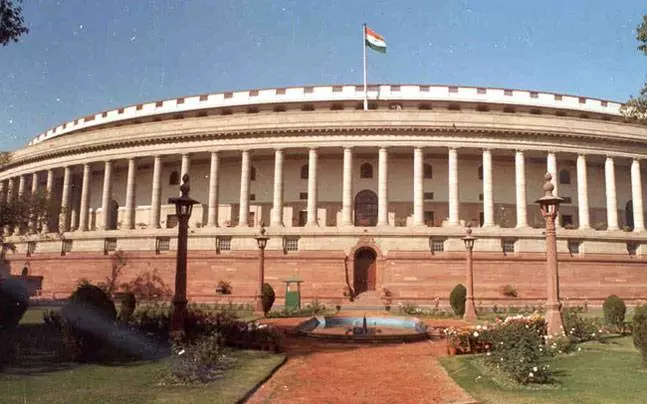
Questions are prohibited here
text_fieldsCPI leader and Member of Parliament Binoy Viswam had written a question to the Rajya Sabha Secretariat in the first week of August. The content of the question was whether the Union Ministry of Foreign Affairs had reached any agreement with the NSO Group in Israel, the makers of the Pegasus spyware used for espionage. As per the procedure of Parliament, the question should be forwarded to the concerned Ministry by the Rajya Sabha Secretariat; thereafter, the Minister should present the answer in Parliament on the due date, in this case on August 12. However, the authorities froze the question on technical grounds. The government argued that even the reference to Pegasus was illegal because the matter was under the consideration of the Supreme Court. Not only that, the monsoon session of Parliament ended two days earlier than scheduled amidst the protests by the opposition for a debate on Pegasus.
Binoy Vishwam's question came in the wake of reports that the mobile phones of prominent opposition politicians, lawyers, journalists, human rights activists and judges in the country had been hacked using spyware. Earlier, the public suspected hacking, but there was not enough evidence. However, the issue came up for discussion across the country after the names of more than 150 victims of the hacking were leaked and the NSO group's connection with the Indian administration became clear. An allegation that Prime Minister Narendra Modi's visit to Israel in 2017 was the venue for a deal with Pegasus is also supported by circumstantial evidence. Naturally, all such issues will come up in the Parliament session. The aforementioned question was also part of it. According to the country's IT policy, it is a criminal offence to use such spyware for activities related to monitoring citizens. The opposition and civil society have posed serious allegations that the Centre has reached an agreement with an Israeli company for such a crime. While a democratic government is obliged to respond, this government has frozen the very platform meant for it.
Parliament is often described as the sanctuary of democracy for it is deemed a platform that reflects the problems, hardships and sorrows of the people of the country. It is also the forum where legislation needs to be enacted to ensure the welfare and peace of the people. However, when a 'spyware' like Pegasus threatens to harm the privacy of a citizen, the fiat to remain silent on it serves as a reflection of its 'democratic glory'. At a time when the Diamond Jubilee celebrations of the country's liberation from foreign domination begin, this also reveals where our democracy stands. That our democracy is facing a grave threat under this fascist regime is no surprise. India is slipping down every year in the 'Democracy Index' of the Economist Intelligence Unit, London. According to the 2020 report, India has slipped two places to 53rd position. When the first Modi government came to power, India was ranked 27th. The question sent by Trinamool Congress leader Santa Chhetri to the Rajya Sabha Secretariat pointing out the 'growth' in this index has also failed to come to light. The question was dismissed on the ground that the Economist Intelligence Unit did not get in touch with the Central Government at the time of compiling the ranking. The Centre has been hiding the fact that the 'Democracy Index' has been compiled on the basis of more than 60 indicators, including pluralism, political culture, civil liberties and religious freedom for the past 15 years.
The attitude of the authorities towards the above two questions underscores the depth of deterioration of our legislature. If these questions were raised on the floor, the point of discussion would have been this vary fall in democratic standards. The government does not want such a discussion. Hence the 'remedy' is to ban questions. Indian fascism that has been silencing the media with undeclared censorship and the civil society on the back of hysteric politics and mob attacks, has enforced its muzzling policy. If the isolated voices from Opposition, already a weak force, is annihilated in this manner, the future of this democracy may not be that bright. To be read with this is the warning sounded by Chief Justice of the Supreme Court NV Ramana who bemoaned the sad state of Indian parliamentary which does not enjoy the presence of academic figures or legal experts.























